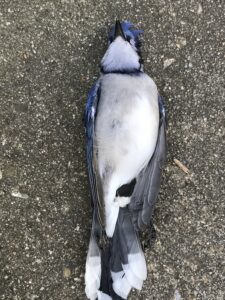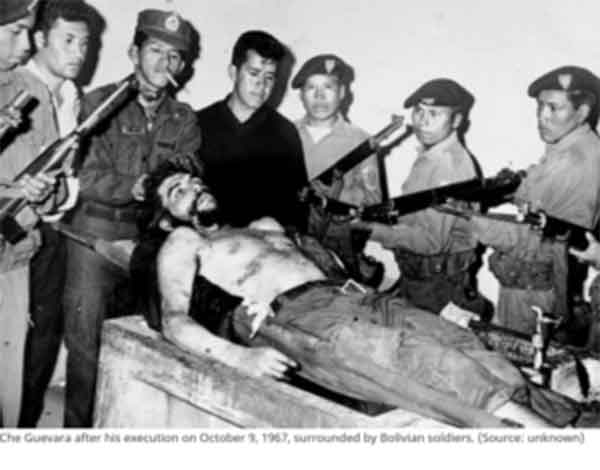To Rebel Against Necessity and More

“Compassion has no place in the natural order of the world, which operates on the basis of necessity. The laws of necessity are as unexceptional as the laws of gravitation. The human faculty of compassion opposes this order and is therefore best thought of as being in some way supernatural. To forget oneself, however briefly, to identify with a stranger to the point of fully recognizing her or him, is to defy necessity, and in this defiance, even if small and quiet and even if measuring only 60cm. x 50cm., there is a power that cannot be measured by the limits of the natural order. It is not a means and it has no end. The Ancients knew this.”
– John Berger, “A Man with Tousled Hair,” from The Shape of a Pocket
Autumn is the dying season. This morning when I came home from a walk, he was lying there on his back. He was dead.
Yet an autumn day like today in the mountains is so beautiful that everything vibrates with life. The air chimes. The clouds tango across the blue dance floor above. The leaves sway to some celestial tune. And the lake laps in synchronicity to singing hearts.
My heart was singing before I found him. His blueness and his beauty startled me. I touched him in the hope that he would move, but he stayed still, on his back with his eyes open. A still life. A life stilled. Only one of millions of fallen birds, yet I felt an immense sadness at the sight of him, as if he were waiting there to tell me something. I wanted so badly to resurrect him, for he seemed so alive in death. I felt myself returning to the blues I felt before my walk.
Vincent Van Gogh wrote to his brother Theo these words:
I feel more and more that we must not judge God on the basis of this world; it’s a study that didn’t come off. What can you do, in a study that has gone wrong, if you are fond of the artist? You do not find much to criticize; you hold your tongue. But you have a right to ask for something better. It is only a master who can make such a muddle, and perhaps that is the best consolation we have out of it, since then we have a right to hope that we’ll see the same creative hand get even with itself.
This bluejay was a small creature, and many people hate his kind. He’s a bully bird, they say. In the celebrated novel, To Kill a Mockingbird, the hero, Atticus Finch says one shouldn’t kill a mockingbird but kill all the bluejays you can hit.
I am wondering who or what killed this beautiful bluejay at my feet, but I will never know.
I do know that “Operation Mockingbird” killed many minds and hearts, and resulted in untold numbers of deaths worldwide. This CIA media propaganda program in which all the major media were doing the bidding of the CIA was allegedly dismantled after its discovery in the 1970s, but it no doubt operates today under a different name. Perhaps its code name is Operation Bluejay, since the bluebird was already used for “Project Bluebird,” a predecessor to MKULtra, the CIA’s other massive mind control program.
The bird names migrate, but they seem to return under different nomenclature for people who are in the business of killing singers of songs of freedom.
They are the killers of Ernesto “Che” Guevara.
For before my walk, I had started to read an article, with declassified CIA and U.S. government documents, from The National Security Archives, about his death. For on this date, October 9, in 1967, the Argentinian revolutionary Che, Fidel Castro’s right-hand man in the Cuban Revolution, was executed by the CIA-led Bolivian military, after having been captured in a firefight in the Bolivian mountains. Fascists killed the courageous Che as he fought to inspire the oppressed to rise up against U.S. imperialism. They executed him in cold blood, consciously and proudly. They posed with his dead body, like macho hunters who pose holding a bird they have just shot.
Writing in The Nation magazine three year ago, Peter Kornbluh, the director of the National Security Archive‘s Chile and Cuba Documentation Projects, described how he had met in Miami with Gustavo Villoldo, who had been the top Cuban-American CIA operative assigned to assist in tracking down and capturing Guevara, the iconic revolutionary, in Bolivia. Villoldo told Kornbluh how he cut off the dead Che’s hands and pieces of his hair and beard before secretly burying his body, which was discovered and dug up in 1997, minus his hand bones. Kornbluh writes:
At one point during the conversation, Villoldo opened the binder and pulled out a white envelope. Inside was a clump of brown hair. As the ultimate souvenir of this Cold War victory, Villoldo proudly stated, he had cut off strands of Che’s hair before disposing of his body. ‘I basically took it because the symbol of the revolution was this bearded, long-haired guy coming down the mountain,’ Villoldo later explained. ‘To me, I was cutting off the very symbol of the Cuban revolution.’
Maybe a hawk killed the bluejay, but if so, it didn’t gloat over its body. It would have been operating under the laws of necessity, where as far as we know, compassion has no place. Not true for Che’s killers. Here they are posing for the camera, guns still aimed at the dead man, as if he still posed a great danger to them. They were right, at least in the long term.

Ernesto Che Guevara is also lying on his back, eyes open. Seeing the bluejay in a similar pose an hour after seeing this photograph, which I had studied for many minutes, gave me a jolt. The bird’s blueness entered my soul. Blue blue blue – I felt I was sinking into a deep hole of sorrow and despair. My sorrow for the bird was nothing compared to the deep rage and anguish I felt when once again I viewed the photo of Che surrounded by cowards, and I thought of all the victims from Bolivia to the Congo and all around the world who have suffered and died – and continue to do so – at the hands of all the ruthless forces he opposed. I wanted so badly to resurrect him, for he seemed so alive in death. And his CIA killers so dead by comparison.
Here was a man of immense courage who gave his life for his beliefs, who was the embodiment of the Cuban Revolution, who cared deeply to liberate the world’s oppressed from U.S.-led imperialism. I kept thinking of another revolutionary on the run from fascist forces, Pietro Spina in Ignazio Silone’s great novel, Bread and Wine, who, disguised as a priest in Mussolini’s Italy, tells a frightened girl who is worried what will ensue if the government captures the rebel leader, who is actually the “priest” she is talking to. “And if they catch him and kill him?” the girl asked.
Killing a man who says ‘No!’ is a risky business, the priest replied, because even a corpse can go on whispering “No! No! No!’ with a persistence and obstinacy that only certain corpses are capable of. And how can you silence a corpse?
We know Che’s voice has not been silenced where victims of imperialism continue to suffer and be killed around the world. But here in the United States, the image-makers have fashioned him into a celebrity whose message is lost, another casualty of mind control and the propagandists who control the corporate media. The people he fought against.
Everyone has seen Che’s image somewhere. Posters of his visage adorn college dormitory rooms. You know, the man with the tousled hair and the beard. The cool charismatic guy! The handsome man who road a motorcycle, was articulate, and could write and speak eloquently. The Che on coffee mugs and tee-shirts everywhere. All derived from one photograph taken by Cuban photographer Alberto Korda for the revolutionary newspaper Revoluciόn in Havana in 1960. A photograph that never earned Korda a cent, but has been exploited by countless money vultures, including the artist Andy Warhol. Che wrote in Socialism and Man in Cuba:
A school of artistic inquiry is invented, which is said to be the definition of freedom; but this ‘inquiry’ has its limits, imperceptible until there is a clash, that is, until the real problems of man and his alienation arise. Meaningless anguish or vulgar amusement thus become convenient safety valves for human anxiety. The idea of using art as a weapon of protest is combated. Those who play by the rules of the game are showered with honours—such honours as a monkey might get for performing pirouettes. The condition is that one does not try to escape from the invisible cage.
Then as now, escaping from that invisible cage is our task, a cage that teaches us not to rebel against what is called “necessity,” but to exploit others every way we can. To profit from their suffering, which is the nature of imperialism. To close our eyes and make believe it is possible to live in an imperialistic country abroad and have a democracy at home. Sooner or later, this pipe dream will come crashing down. Perhaps that is happening now.
One does not have to agree with every thought Che expressed more than five decades ago. Or with all his tactics. But if you read his words, you will see that the conditions for oppressed people throughout Latin American and around the world have not changed very much in all these decades. Of course, the propaganda has become far more sophisticated, and the temptation to play by the rules of the game and pirouette like caged monkeys is stronger than ever. Now as then, the religion of consumption is a private devotion for the public, and it is not just things that people are consuming but illusory images of a good and decent life. But their pursuit “is a race among wolves; one can win only at the cost of others’ failure,” wrote Che. Such a system is not necessary but is imposed and must be resisted.
For the little dead bird I encountered this morning, all I can offer is my compassion that opposes the order of necessity – my “supernatural” resistance. So I buried the blue creature out of respect and reverence.
But war and imperialism are not natural, and so I cannot bury my conscience, but must try to find ways to resist such human cruelty.
I ask myself, says Don Benedetto, the elderly priest in Silone’s Bread and Wine, “what is to be done?” He pauses and continues:
I am convinced that it would be a waste of time to show a people of intimidated slaves a different manner of speaking, a different manner of gesticulating; but perhaps it would be worth while to show them a different way of living. No word and no gesture can be more persuasive than the life, and if necessary, the death of a man who strives to be free, loyal, just, sincere, disinterested: a man who shows what a man can be.
Che did that. Now it’s up to us.
“At the risk of seeming ridiculous,” he wrote, “ let me say that the true revolutionary is guided by great feelings of love.”
Is such love and sacrifice supernatural?
If so, let us fly to the heights.
Edward Curtin is an independent writer. http://edwardcurtin.com/
https://countercurrents.org/2020/10/to-rebel-against-necessity-and-more/

0 Comments:
Post a Comment
Subscribe to Post Comments [Atom]
<< Home